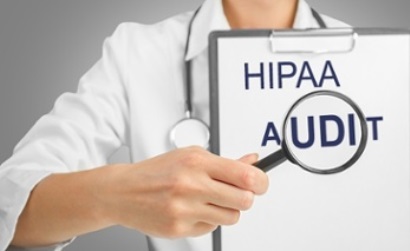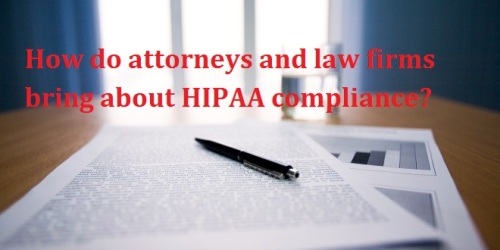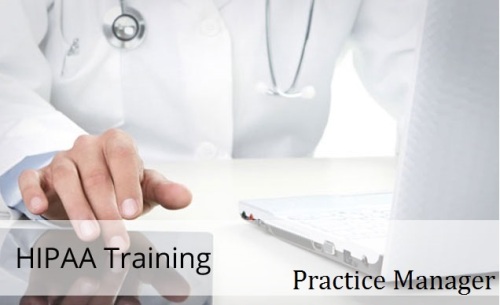 All the major players in an organization that is required to carry out HIPAA audits, such as information technology managers, business managers and compliance officers, have to be conversant with all aspects of the HIPAA Security Rule as it relates to portable devices. They need to be thoroughly clear about all areas such as texting, email, encryption, medical messaging, voice data and risk factors as they relate to IT.
All the major players in an organization that is required to carry out HIPAA audits, such as information technology managers, business managers and compliance officers, have to be conversant with all aspects of the HIPAA Security Rule as it relates to portable devices. They need to be thoroughly clear about all areas such as texting, email, encryption, medical messaging, voice data and risk factors as they relate to IT.
In addition, they also need to be aware of the major changes and any other applicable updates that relate to HIPAA for 2016. Texting, email, encryption, medical messaging, voice data and risk factors as they relate to IT are some of the grey areas of a HIPAA audit, and those in charge of an organization’s compliance need to be thoroughly knowledgeable about all these, or else they have a good chance of goofing up their HIPAA audit, the result of which is heavy penalty.
Get trained in this direction
The way of getting prepared for a HIPAA audit in a very right and comprehensive manner is the teaching of a webinar that is being organized by MentorHealth, a highly reputable provider of professional trainings for the healthcare industry.
Brian Tuttle, a Certified Professional in Health IT (CPHIT), Certified HIPAA Professional (CHP), and Certified Business Resilience Auditor (CBRA) , who brings over 15 years’ experience in Health IT and Compliance Consulting, will be the speaker at this webinar. Log on to http://www.mentorhealth.com/control/w_product/~product_id=800865LIVE/~sel=LIVE/~Brian_Tuttle/~HIPAA_2016_-Texting_and_Emailing to enroll for this highly educative session, where the speaker will bring the experience of having carried over 600 risk assessments as well as having directly dealt with the Office of Civil Rights HIPAA auditors.
A learning session about getting texting and emailing under HIPAA right
Brian will help organizations put an affective HIPAA compliance program that takes into consideration the texting and emailing aspects, as well as updates for 2016, in place. Brian will offer examples of real life audits conducted by the Federal government to explain the highest risks an organization faces for being fined. He will also explain the highest risk factors for being sued for wrongful disclosures of PHI and the manner in which patients are now using state laws to sue for wrongful disclosures.
Changes at HHS mean a lot to BA’s and CE’s
Brian will offer the very important understanding of the new changes taking place at the Health and Human Services (HHS) as it relates to enforcement of HIPAA for both Covered Entities and Business Associates with regard to portable devices, texting, and emailing of PHI. These entities need to know how to insulate themselves from an audit risk as well as being sued by individuals who have had their PHI wrongfully disclosed due to bad IT practices.
Brian will cover the following areas at this webinar:
o Updates for 2016
o BYOD
o Portable devices
o Business associates and the increased burden
o Emailing of PHI
o Texting of PHI
o Federal Audit Process.
Texting and emailing as part of HIPAA 2016
All the major players in an organization that is required to carry out HIPAA audits, such as information technology managers, business managers and compliance officers, have to be conversant with all aspects of the HIPAA Security Rule as it relates to portable devices. They need to be thoroughly clear about all areas such as texting, email, encryption, medical messaging, voice data and risk factors as they relate to IT.
In addition, they also need to be aware of the major changes and any other applicable updates that relate to HIPAA for 2016. Texting, email, encryption, medical messaging, voice data and risk factors as they relate to IT are some of the grey areas of a HIPAA audit, and those in charge of an organization’s compliance need to be thoroughly knowledgeable about all these, or else they have a good chance of goofing up their HIPAA audit, the result of which is heavy penalty.
Get trained in this direction
The way of getting prepared for a HIPAA audit in a very right and comprehensive manner is the teaching of a webinar that is being organized by MentorHealth, a highly reputable provider of professional trainings for the healthcare industry.
Brian Tuttle, a Certified Professional in Health IT (CPHIT), Certified HIPAA Professional (CHP), and Certified Business Resilience Auditor (CBRA) , who brings over 15 years’ experience in Health IT and Compliance Consulting, will be the speaker at this webinar. Log on tohttp://www.mentorhealth.com/control/w_product/~product_id=800865LIVE/~sel=LIVE/~Brian_Tuttle/~HIPAA_2016_-Texting_and_Emailingto enroll for this highly educative session, where the speaker will bring the experience of having carried over 600 risk assessments as well as having directly dealt with the Office of Civil Rights HIPAA auditors.
A learning session about getting texting and emailing under HIPAA right
Brian will help organizations put an affective HIPAA compliance program that takes into consideration the texting and emailing aspects, as well as updates for 2016, in place. Brian will offer examples of real life audits conducted by the Federal government to explain the highest risks an organization faces for being fined. He will also explain the highest risk factors for being sued for wrongful disclosures of PHI and the manner in which patients are now using state laws to sue for wrongful disclosures.
Changes at HHS mean a lot to BA’s and CE’s
Brian will offer the very important understanding of the new changes taking place at the Health and Human Services (HHS) as it relates to enforcement of HIPAA for both Covered Entities and Business Associates with regard to portable devices, texting, and emailing of PHI. These entities need to know how to insulate themselves from an audit risk as well as being sued by individuals who have had their PHI wrongfully disclosed due to bad IT practices.
Brian will cover the following areas at this webinar:
o Updates for 2016
o BYOD
o Portable devices
o Business associates and the increased burden
o Emailing of PHI
o Texting of PHI
o Federal Audit Process.




 What can be and cannot be done with the use of personal devices under HIPAA is something practices and businesses that need to be compliant with the provisions of HIPAA need to be thoroughly aware of.
What can be and cannot be done with the use of personal devices under HIPAA is something practices and businesses that need to be compliant with the provisions of HIPAA need to be thoroughly aware of.




 To do all this, a healthcare practice, business or organization needs to have a good grasp of the fundamentals of what it takes to protect PHI. It also needs to make sure that its current safeguards are sufficient to withstand government scrutiny. Another reason for the need for understanding what requirements need to be met to safeguard PHI is that there has been a substantial increase in HIPAA data breaches
To do all this, a healthcare practice, business or organization needs to have a good grasp of the fundamentals of what it takes to protect PHI. It also needs to make sure that its current safeguards are sufficient to withstand government scrutiny. Another reason for the need for understanding what requirements need to be met to safeguard PHI is that there has been a substantial increase in HIPAA data breaches








 All the major players in an organization that is required to carry out HIPAA audits, such as information technology managers, business managers and compliance officers, have to be conversant with all aspects of the HIPAA Security Rule as it relates to portable devices. They need to be thoroughly clear about all areas such as texting, email, encryption, medical messaging, voice data and risk factors as they relate to IT.
All the major players in an organization that is required to carry out HIPAA audits, such as information technology managers, business managers and compliance officers, have to be conversant with all aspects of the HIPAA Security Rule as it relates to portable devices. They need to be thoroughly clear about all areas such as texting, email, encryption, medical messaging, voice data and risk factors as they relate to IT.












